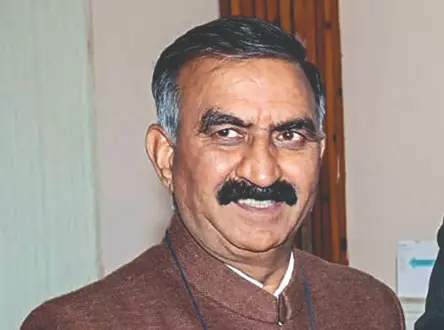‘Economic reforms, strengthened rural economy paving way for self-reliant HP’

Shimla: On the 78th anniversary of the formation of Himachal Pradesh on 15th April, Chief Minister Sukhvinder Singh Sukhu extends greetings to the state people. “On this day in 1948, just eight months after India’s independence, our beautiful state came into existence through the merger of 30 princely hill states and became a centrally administered territory,” the CM Sukhu said.
The CM acknowledges the establishment of Himachal as a separate state was made possible through the efforts of state’s visionary leaders, heroes of the Prajamandal movement, countless freedom fighters, and the active participation of the people of the region.
“I pay my homage to Yashwant Singh Parmar, the architect and first Chief Minister of Himachal Pradesh, along with all the great personalities who played a vital role in shaping the unique identity of Himachal,” the CM said.
Reminding the success path of the state, the chief minister says, “Today, Himachal stands on the cusp of a new era. The state government has embarked on a transformative path to make Himachal self-reliant by 2027 and among the most prosperous states by 2032. This vision is rooted in concrete action, strategic reforms and an unwavering commitment to the welfare of people of state.”
“Himachal government has fulfilled six out of its ten key guarantees. The government’s natural farming revolution has become a model for other states. For the first time, the state has fixed Minimum Support Prices (MSP) for crops grown through natural methods,” Sukhu further said.
Himachal chief minister claims that over 1.58 lakh farmers have already been certified in natural farming and enrolled under the ‘Him Parivar’ register. The digitised system enables the direct transfer of benefits and links farmers with markets and created a robust support structure. In addition, the state government is providing a 50 per cent interest subsidy on agricultural loans up to Rs. 3 lakh which is offering much-needed financial relief to farmers who have long battled debt and uncertainty.
“The dairy sector has also received unprecedented attention. The procurement price of cow milk has been raised from Rs. 32 to Rs. 51 per litre and that of buffalo milk from Rs 47 to Rs 61 per litre, which is highest in the region. Additionally, milk cooperative societies are being provided Rs. 3 per litre as transport subsidy,” he said.



